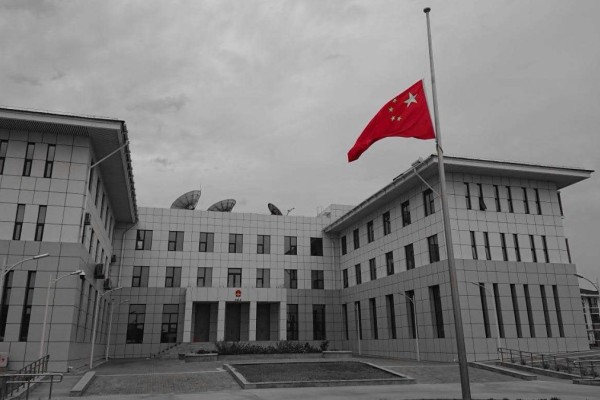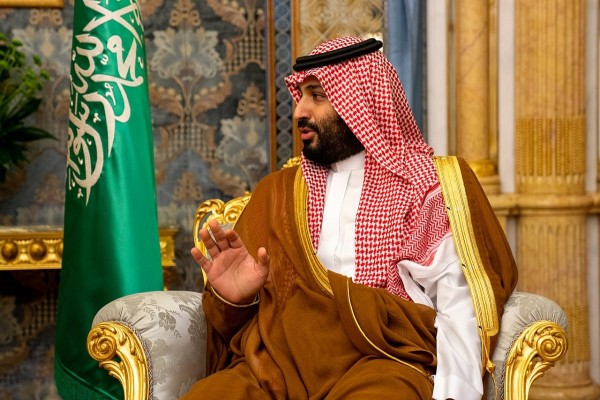-

Open letter: Discussions of foreign interference and national security can quickly become toxic
We are deeply concerned that discussions of foreign interference and national security can quickly become toxic as we have already seen in the accusations that a respected Chinese Canadian senator and a newly elected mayor are agents of the Chinese government. Such accusations can quickly lead to gross violations of people’s democratic rights and personal security.
-

Document reveals true motives behind Canada’s support for Saudi Arabia
Documents released by online media outlet The Breach illustrate that Canada’s cozy relationship with Saudi Arabia is based solely on cold economic calculations—specifically, Western access to cheap oil, Canadian access to Saudi markets, and the Wahhabi kingdom’s role as a “bulwark” against other regional power formations, specifically Iran and its allies.
-

Canada’s ‘China syndrome’
As the war in Ukraine stalls, the empire and its provinces seek to renew tensions with an old enemy. The allegation that China attempted to interfere in Canada’s 2019 and 2021 federal elections is just the latest example of Sinophobic hysteria conjured up the agencies whose actions remind us that the term ‘military intelligence’ is an oxymoron.
-

Against multipolar imperialism
Placing our faith in the reshuffling of the US hegemon’s power to a multipolarity of national elites to unlock better conditions of struggle would be idealism in its own right. Revolutionary anti-imperialist struggles must remain vigilantly pluralist and anti-authoritarian, and see multipolarity without socialist democracy as merely another expression of imperialism, rather than its death knell.
-

Why Turkey was ill-prepared for the Kahramanmaras earthquake
On February 5 and 6, 2023, the East Anatolian fault in Turkey released two major earthquakes, the largest one registering 7.8 on the Richter scale. This earthquake is now among the strongest recorded in Turkey’s modern history. The massive tectonic move was felt from the Black Sea coast all the way down to Lebanon. It is one of the biggest disasters Turkey has experienced in the last century.
-

Is China a threat to Canadian democracy?
In early November, Global News journalist Sam Cooper reported on intelligence gathered by the Canadian Security and Intelligence Service alleging that China has been interfering in Canadian politics, most notably by transferring funds to a handful of candidates in the 2019 federal election. But the article is based on unsubstantiated claims and dubious allegations.
-

Trudeau sending more Canadian soldiers to the Pacific
At this year’s Asia-Pacific Economic Cooperation forum, held in Thailand, Prime Minister Justin Trudeau announced that the Canadian military presence in the Pacific will be deepened once more. Leading officials in Ottawa have stated that the increase in Canadian military personnel in the “Indo-Pacific” is aimed at countering China’s role in the region.
-

Canada’s ‘sustainable transition’ is tied up with Washington’s war on China
Canada has material interests in demonizing China and urging other countries to reduce trade with the country or decouple from its economy entirely. Foremost amongst those interests is Canada’s burgeoning battery metals industry, which Canadian political leaders and industry figures are attempting to develop into a profitable international alternative to China.
-

Ottawa has never been a benevolent force in Iran
When it comes to foreign policy, no matter what party is in power, it’s more of the same. The Liberals came to office promising to back away from the Conservative’s low-level war against Iran. With the prime minister joining a chorus calling for the removal of the Iranian regime, Canada has again ramped up tensions with the Western Asian nation.
-

Are we seeing the return of a multipolar world?
It’s becoming commonplace to suggest that a multipolar world order is emerging, one that will replace the US-dominated world system that has reined since the end of the Second World War and faced no serious challengers since the fall of the Soviet Union. As Greg Shupak writes, what is certain is that the old order will not fall without a great deal of struggle.



